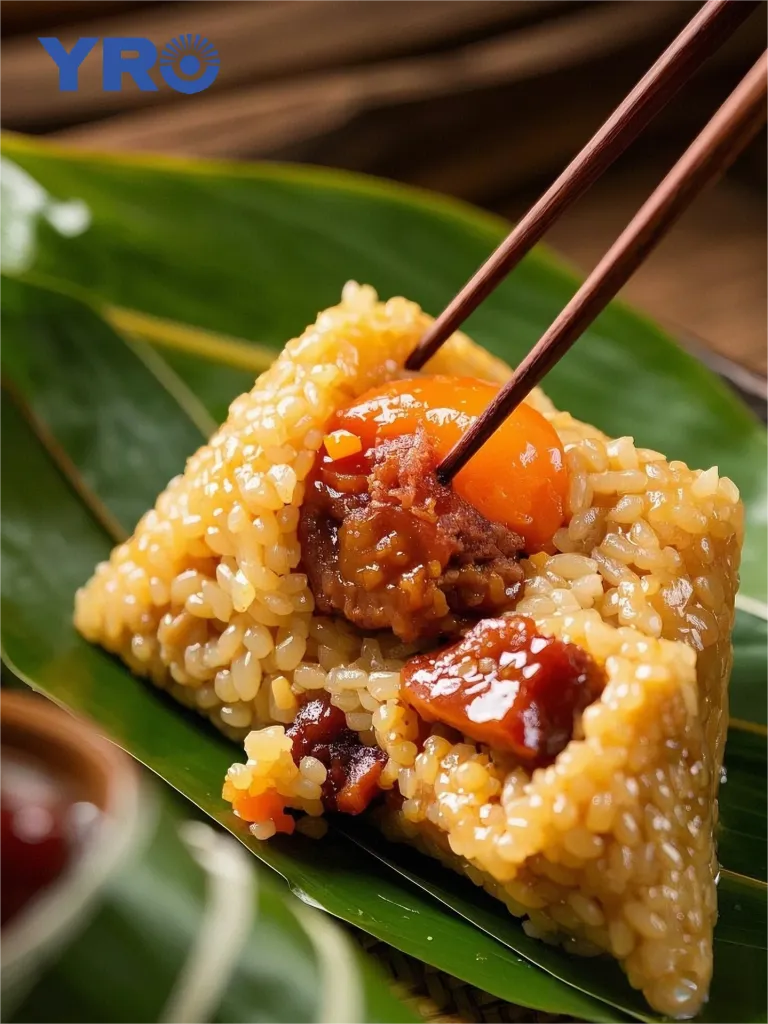When the fragrance of mugwort wafts through window lattices, when the drumbeats of dragon boats awaken early summer, this UNESCO-recognized Intangible Cultural Heritage festival – the Dragon Boat Festival, carries its millennia-old charm, tracing a brilliant trajectory across the constellation of Chinese civilization.
Origin of the Dragon Boat Festival
The Dragon Boat Festival is one of China’s four major traditional festivals, celebrated annually on the fifth day of the fifth lunar month. In 2025, it falls on May 31st. Its origins are both mysterious and poetic, with the most well-known story connected to Qu Yuan.
The festival originated during the Warring States period (475-221 BC), when patriotic poet Qu Yuan drowned himself in despair over his country’s fall. People raced boats to retrieve his body, and threw rice balls (the earliest form of zongzi) into the river to prevent fish from eating his remains. These acts gradually evolved into today’s dragon boat racing and zongzi-eating customs. However, the festival’s origins trace back even earlier to ancient Baiyue tribes’ dragon totem worship, where people raced dragon boats to pray for favorable weather.
Dragon Boat Festival Customs
More than just a “Zongzi Festival,” it represents Chinese wisdom and romance in combating the “Poisonous May” of summer!
1. Dragon Boat Racing
The soul of the festival! The diejiao dragon boat races in Foshan, Guangdong, can be described as “Fast and Furious” on water – drifting and reversing in L-shaped channels just 6 meters wide, comparable to waterborne racing.
2. Zongzi (Sticky Rice Dumplings)
Northern Chinese prefer sweet zongzi with red dates and bean paste, while southerners favor savory versions with salted egg yolks and pork. But the earliest zongzi were actually bamboo tube rice! During the Spring and Autumn period (approx. 770-476 BC), “horned millet” wrapped in wild rice leaves marked the prototype of zongzi, which has since developed into hundreds of varieties.

3. Hanging Mugwort & Wearing Scented Sachets
“Willow branches at Qingming, mugwort at Dragon Boat” – mugwort and calamus are hung above doors to ward off evil, while sachets filled with mugwort, mint and other herbs refresh the mind and repel insects.
4. Drinking Realgar Wine
In some areas along China’s Yangtze River, there’s a custom of drinking realgar wine. This is wine infused with realgar (arsenic sulfide), often mixed with cinnabar. Legend says it wards off evil spirits and prevents certain diseases. However, due to realgar’s toxicity, direct consumption has become rare today, though it still appears in some traditional activities.
Conclusion
From the “horned millet” of the Spring and Autumn period to today’s diverse zongzi, from the cheers of dragon boat races to the fragrance of mugwort sachets, the Dragon Boat Festival is not just an echo of history, but a living cultural inheritance.
